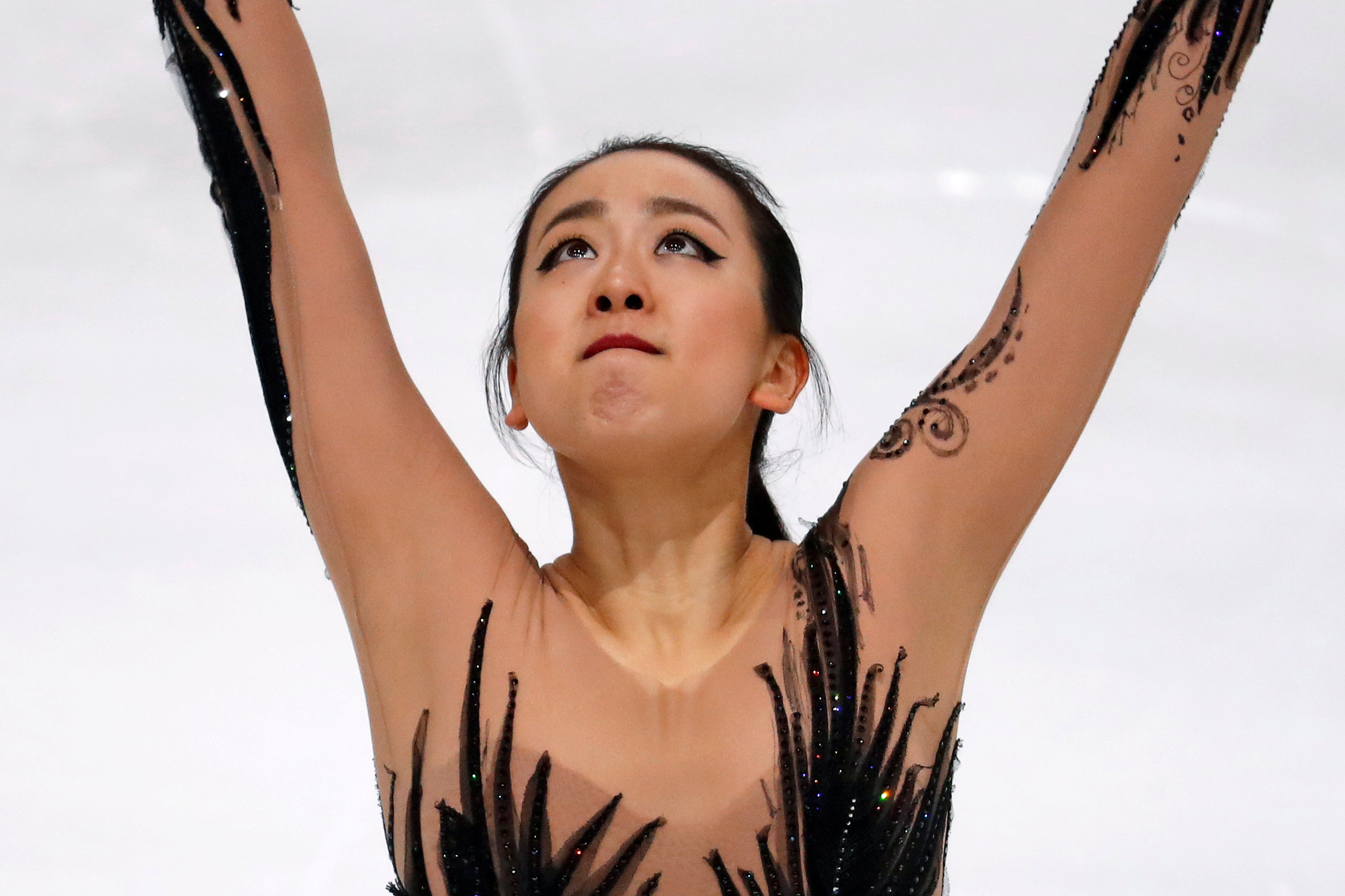The day after figure skating icon Mao Asada announced her retirement on her personal blog, news spread like fire across the country and was received with mixed feelings.
On Tuesday, reactions and well-wishes came pouring in from all corners as the 26-year-old Nagoya native was pushed into the public spotlight with nationwide media coverage recognizing her for the phenomenal contribution she made to the sport.
"I've made the decision to end my career as a figure skater," Mao wrote on her personal blog on Monday night. "I've been able to skate this long and overcome so many obstacles thanks to the support and cheer I received from many people."
According to her coach Nobuo Sato, who spoke to reporters in Yokohama on Tuesday, Mao visited Shin-Yokohama Skate Center Monday morning and told him of her intention to draw the curtains on her illustrious career, which includes a silver medal at the 2010 Vancouver Olympics, three world titles, three Four Continents titles and four Grand Prix Final titles.
"She said she wants to call it a career," said Sato, adding that Mao did not appear to be in low spirits as she hugged the other coaches before she left her primary practice facility.
Sato, who was hired by Mao after the Vancouver Games, reminisced about his days with the athlete affectionately known as "Mao-chan," revealing that there were times when the two disagreed over whether to attempt her trademark three-and-a-half rotation jump — the triple axel — in competition.
"It's only natural that we had our downs having worked together for such a long time, but in the end she accomplished a lot and I only have praise for her," the veteran coach said.
"After the national championships last year, the goal that had been driving me disappeared, and with it went the motivation to continue as a skater too," Mao wrote on her blog.
"I reached the decision but I have no regret over my figure skating career. It was a big decision for me, but I also believe it is another passing point in my life. I want to find new dreams and goals and progress further with a smile on my face.
"I'm really thankful to everyone for giving me so much support."
Mao's bid to skate in a third Olympics became more complicated when Japan failed to secure the maximum three spots in women's singles for the Pyeongchang Games next February due to the results at last month's world championships in Helsinki.
Mao, who started skating when she was 5 years old, became a national star when she beat gold favorite Irina Slutskaya of Russia to win the Grand Prix Final in Tokyo as a 15-year-old in December 2005.
In December 2011 her mother died at the age of 48, but Mao made an emotional return to the All-Japan Championships two weeks later, where she won her fifth of six national titles.
After taking a one-year break after the 2014 season when she won her third world title and finished sixth at the Sochi Olympics, Mao never recovered from her slump, which, along with a lack of motivation, she cited as her reasons for retiring.
Miki Ando, a two-time world champion, was one of the first to pay tribute to her longtime rival after the news broke late Monday evening. "She deserves credit for working hard for such a long time. I'm honored to have been able to skate with Mao in the same era and skate together as representatives of Japan," Ando said.
Former skater Takeshi Honda, who placed fourth at the 2002 Salt Lake City Games in the men's program, was heartbroken as he, like many other fans, had hoped to see more of the Chukyo University graduate in action.
"I can't think of any other skater who has done as much as she has. I was hoping she would continue skating until the Pyeongchang Winter Olympics, but she did really well. She was the best skater ever," Honda said.
Mao's retirement from the sport had a much bigger impact than she herself could possibly imagine, going to show her influence extends far beyond the ice rink.
Gymnast Kohei Uchimura, a two-time individual Olympic gold medalist and six-time world champion, did not say he is sorry to see his role model Mao go as he can relate to the challenges that come with being a high-profile athlete.
"I was inspired by her, seeing how she led the women's figure skating world with her audience-drawing performances. I look forward to her future activities," said Uchimura.
Seiko Hashimoto, the head of the Japan Skating Federation, said that Mao's contribution to the sport — on and off the ice — has been valuable, and hopes she continues to remain in the spotlight for the good of the country.
"We owe her. I think we can say that the skating world is where it's at because of how she continued to perform at the top level," Hashimoto said. "I pray for the very best as she makes use of her experience, enters the next chapter of her life and does even better."






